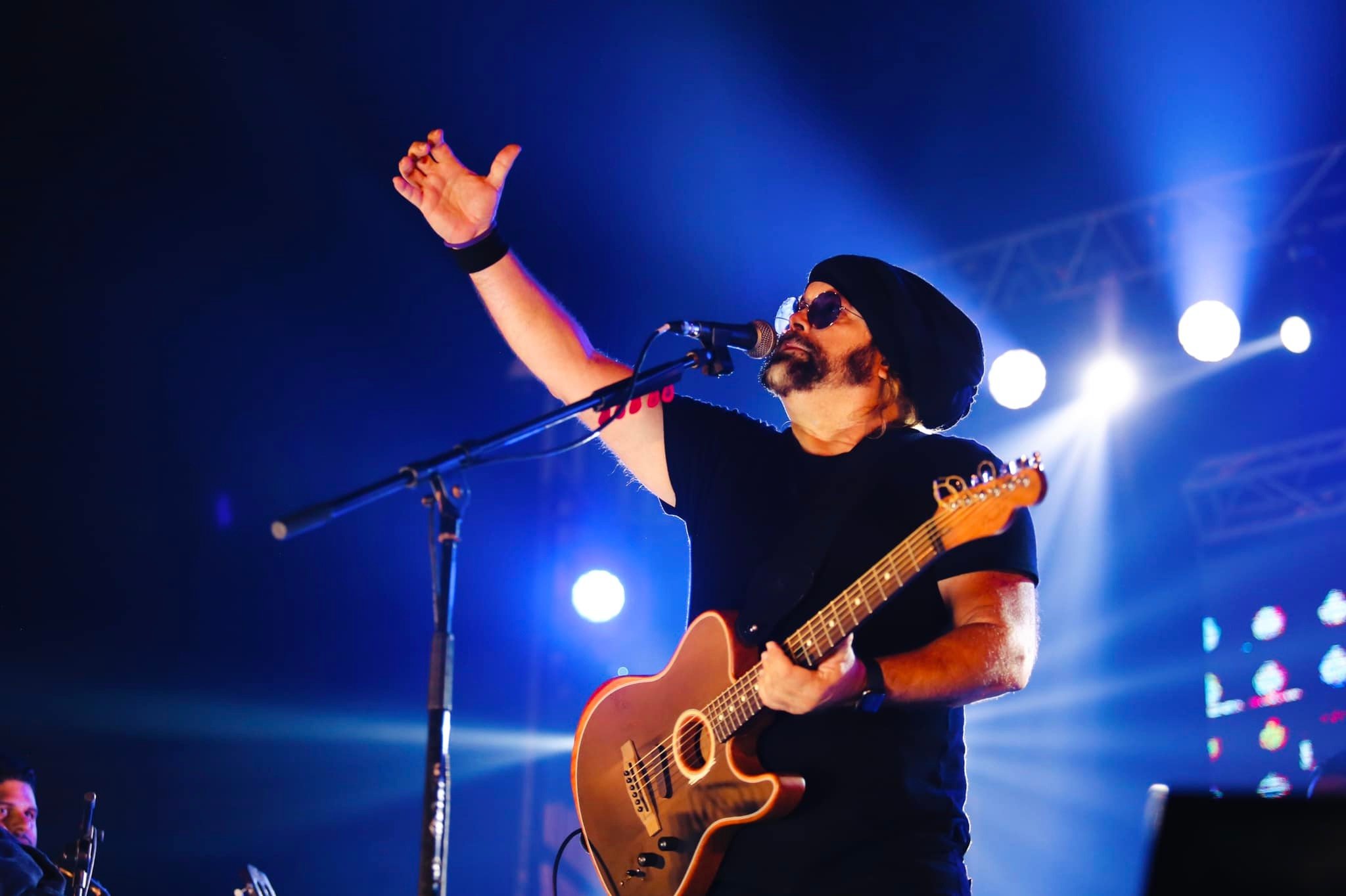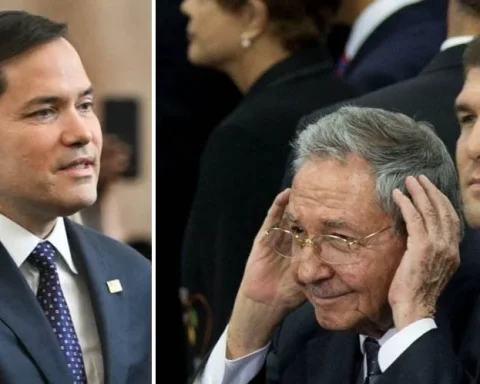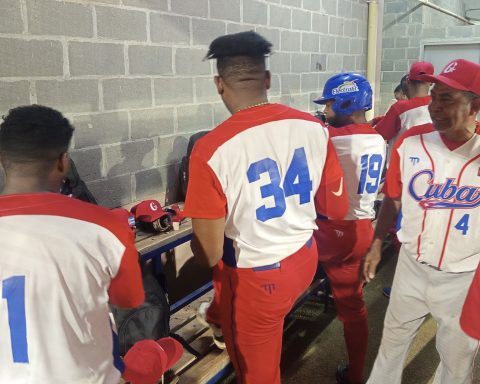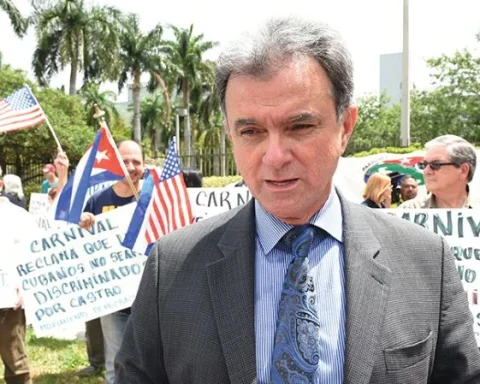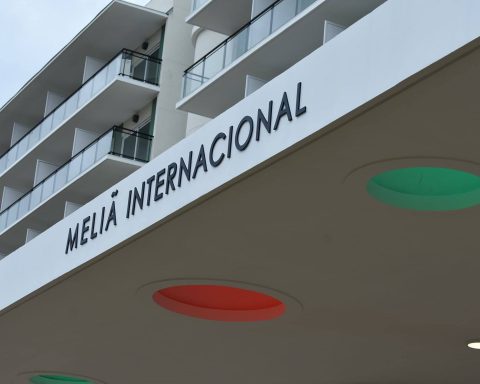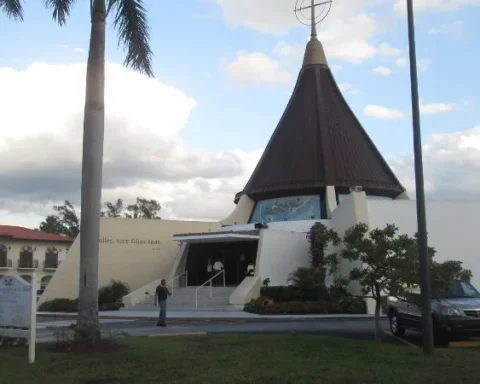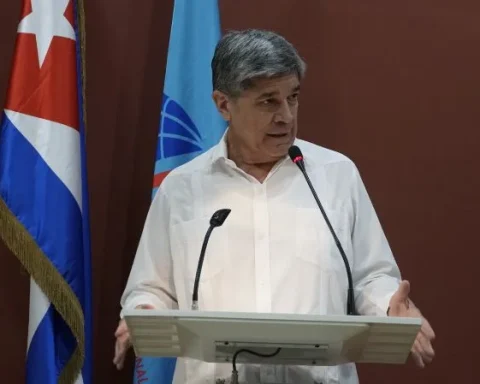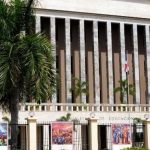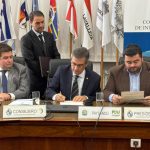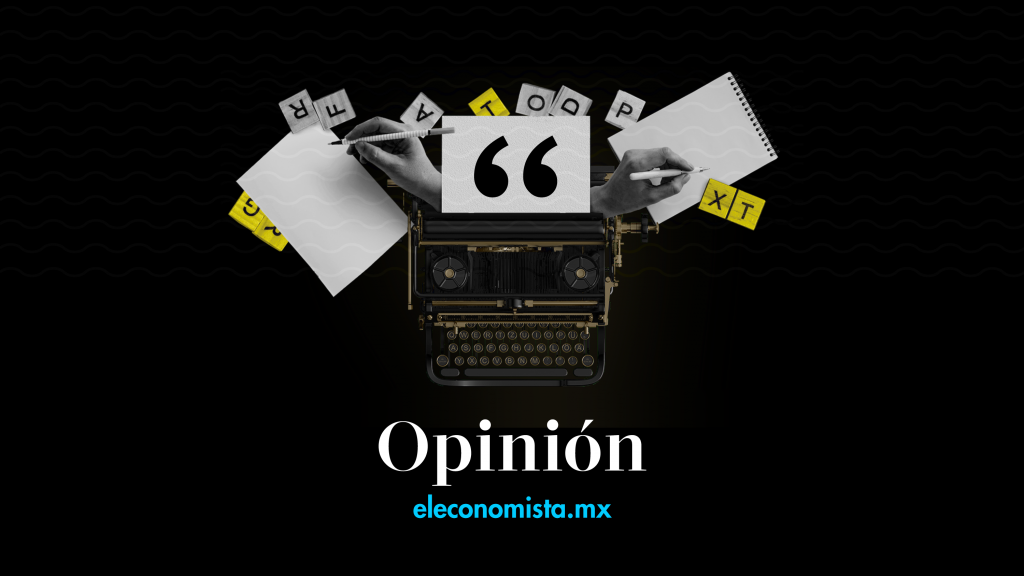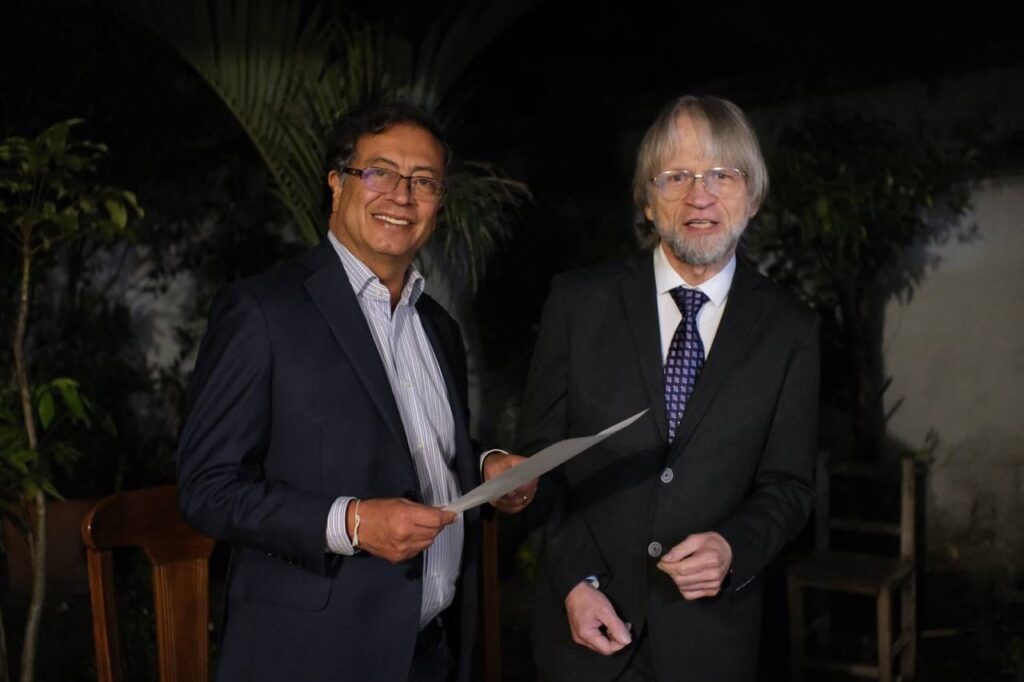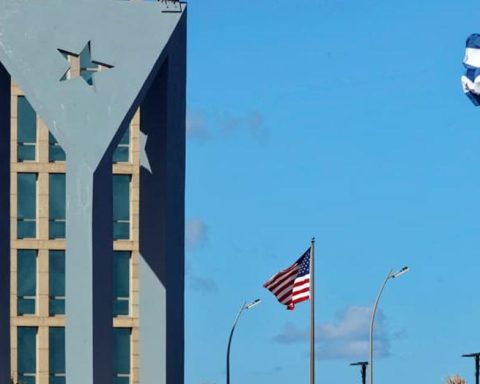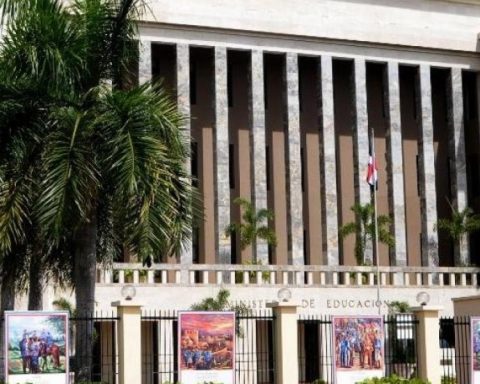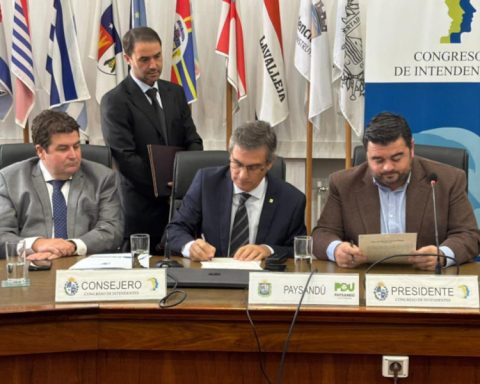I don’t remember the year of my first Carlos Varela concert. I think it was in some section of the watershed that was the decade of the 90s, those years that were a knock on the national lethargy engraved with the hardness of a chisel in memory.
The date is surrounded by darkness but the heart has its memory and does not forget the electrifying sensation of freedom that we experienced during a night that was not a concert. Or it was that and much more. Varela sang and we shouted our disagreement, our rebellion, the turbulence of our adolescent anguish. The majority at that tender and convulsive age possibly did not know what the voice was crying out for, they did not fully know the meaning of the cry, and the national deficit that the claim provided, but they knew that with the unrepentant vocation to demonstrate they were being part of a generation that he sought to change what his eyes saw, unaccustomed to the absences that were already sitting at the table to begin with a methodical force the detachment from the life that we knew up to that moment.
Varela has continued to give concerts after that first live encounter with the singer-songwriter, which was nothing more than an encounter with the underside of a country that did not appear in the media, a country that, after more than 20 years, continues to reaffirm the reason for those songs inscribed on the spine of pain.
The singer-songwriter has had times in which he has visited the national stages with some frequency, he has lived others of estrangement and strangeness and on many occasions the silence in which he has remained has had a deafening sound for his followers.
Varela’s concerts have been one of the greatest spaces of spiritual freedom for young Cubans. Between the silent interval that goes from song to song, what some think in silence has been heard aloud and a personal communion has been established among the public as in very few presentations by other artists. Vera knows it. Because he was one of those boys who one day began to smudge pages and compose what he interpreted about the events and evolution of the country.
The troubadour has never ceased to be in the crosshairs of opposing ideologies. The same in Cuba as in the US or in other parts of the world. It only takes a Cuban who cannot get rid of Varela to unleash, let’s say, greed, provocation or restlessness. It has happened and will continue to happen. Because we can deny the troubadour, lock him in the darkest room of memory, accuse him of repeating himself, of being a dozen or recognize when we have him in front of us that we are not only in front of a musician, but of a country in all the dimensions of its fractures, its forgetfulness and its turbulence. There they are as their greatest testimony a gallery of songs that speak better of the musician than any other release and reveal Cuba as if it were a canvas. Already with records like Coins in the air, Jalisco Park either like the fish Varela can say that he has said it all. And we feel that yes, that Cuba is truly locked up in those songs. That he sang just at the time that it had to be said. That in his songs there are still the aroma of our childhood, our adolescence and the country that is Cuba today. There are even enough words to talk about the troubadour, because for him the words were a pretext for us to start talking about ourselves.
We have always demanded a lot from Varela. Maybe too much. We have even demanded that he talk about us in the way that we don’t dare to talk to ourselves or simply don’t want to, to forget a little about the fear of the word or uneasiness.
In Florida many times they have demanded a decisive political position. In Cuba, fears, suspicions, and resentments have closed doors that for years remained immovable. Nor have there been a lack of people who, in various spheres of decision-making, opened spaces for him that remained closed so that he could definitively reach that pinnacle of our affective memory that he inhabits today.
Varela, in another cyclical turn of history, has just been peppered with diatribes. He is not surprised that these inherited facts rear their heads again in Cuba. The surprising thing is that in the middle of 2022 the same arguments from decades ago are used to question him for doing the same thing he has been doing since he first picked up a guitar.
Let’s put it in context. Varela returned to the Cuban stages to offer a concert at the Havana World Music festival. Fortunately, he returned to deliver the best version of himself. He showed that the best Varela we know is intact and that he undressed us as a nation. The presentation, yes, had a symbolic value. Because it is not the same to listen to Carlos about 5 years ago, to set a date, than to hear him in today’s Cuba, where someone else lives. migration crisis marked above all by the departure of young people who defy fate to seek a future according to their expectations, whether by land or by sea, by the very challenges of the embargo/blockade and where the tremors of the marches of the July 11.
The troubadour, as always, dedicated his personal tribute to the Cubans who died at sea, to the broken families, to the life that fades before his eyes, and he asked, in short, for us, for the well-being of Cuba. His invocations from ¡Viva Cuba Libre! and the claims for the absences, heard at other concerts years ago, have caused an incredible but expected schism in the networks. Many have gone for the troubadour’s jugular with remarks of an irrational mood. It seems that some prefer a country without Varela, which is the same as having a country without a country. And everything, I already said it, for invoking the usual ritual, for singing the usual songs and for being the musician he has always been.
A wave of expressions, without sustenance, lacking the power of observation and imagination, which are unfortunately a corpse before birth, and which, on the other hand, could well have contributed to a powerful debate about the musician, individual, collective freedom and the topicality of the song, if they had been sustained on the basis of responsibility, knowledge and rigor. If we observe the fury of reaction, it seems that some thought that Varela, in an unprecedented turn, was going to ask his audience to move their hips, that he was going to ask single women to raise their hands or that he was going to change the repertoire to sing Pimpernel songs.
The reflections spread against the troubadour on the networks, however, only allude to the musician about whom they have come to say such nice phrases as that he has a black soul because he wears black clothes. An idea worthy of being collected in the bestiary of the absurd. The analyzes elaborated on the void are especially worrying because Cuba in the cultural field maintained a tradition of solid exchanges, controversies and debates.
No one, at least as far as I know, has stopped at the reaction of the public, at the voices that pronounced the word “freedom” for minutes. Nobody has wondered in the public comments about the reason that led to that rosary of exclamations. As if they had not existed. As if the troubadour had been alone on stage singing to himself. Any cultural analysis, or any other type, that ignores the context, is not serious. Just by moving the pendulum a little, a complete outline of the landscape of that night of freedom in the Ciudad Deportiva would have been obtained.
That analysis, for the good of Cuban culture, and of Cuba in general, cannot be avoided. It is very easy to attack the messenger but ignore the response. To tell the truth, the impetus of those same expressions with greater or lesser tone have historically been heard in Varela’s concerts, but now the stage is diametrically different. And as has always happened, the audience and the twists and turns of history are what give a new light to the troubadour’s songs. Really, is there any record more current than like the fish 25 years after its publication?
The weight of reflection, for it to be deep and valuable, should not fall on Varela because, as I said, the musician has done nothing but be himself. The Gnome has shouted ¡Viva Cuba Libre! at his concerts, because the sense of freedom is precisely one of his greatest obsessions, along with migration and exile. The same musician has portrayed what happened after the concert in several of his songs, including the very symbolic “Jalisco Park” or “Leñador sin Bosque”. In other words, when Varela talks about the past he has been able to anticipate his own scenario and the irritation of nerves that the troubadour unusually arouses. He has been able to do it simply because the fragments of the story that he chronicled retain the character of repetition since his burdens are there looking at his face like the first day.
The new voices of the young people who became part of a cry of discomfort, of rebellion, of longing to see new flashes, of a new country; they are very similar to those we uttered that night of my first discovery, but they are also radically different.
The claims that have been heard in the concerts of Varela and other singer-songwriters (I have not forgotten those extraordinary rituals of the Santiago Feliú concerts where the troubadour shouted from his own perspective ¡Viva Cuba libre! and the theater collapsed when listening to el “Rock and rollito de Fulanita y Menganito”) are not the same ones heard now, although they are practically identical in their longing. They are the mark of a new generation that claims to be listened to, that in the game of history wants to play with its own chips. And if they still raise their voice in Cuba, it is because they want their dreams to continue here and not be crucified on the wall without being able to do anything.
